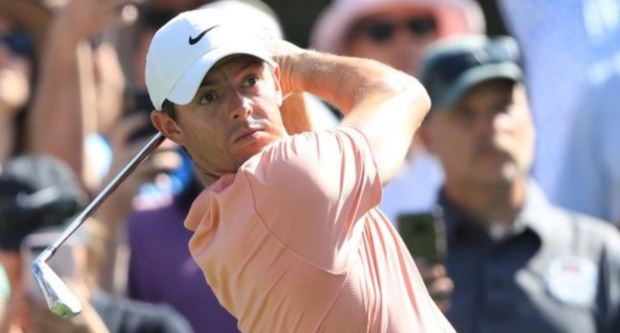Pro golfers should take time to reflect on mooted breakaway
January 2012, Abu Dhabi. Englishman Robert Rock is holding off Rory McIlroy and Tiger Woods to claim the HSBC Golf Championship by a stroke. It was a surreal moment for Rock, who is over a decade older than McIlroy and just two years younger than Woods. “I used to sell Mars bars and watch Tiger win Majors.” He says, referring to his time as a golf instructor. The victory put Rock up to the heady heights of 55 in the world rankings, his best-ever placing. Today, he remains active on the European Tour, but currently sits outside the top 400 in the OGWR. Still, he will always have Abu Dhabi.
Moments like Rock’s are infrequent in golf, of course. But, as any fan will tell you, it’s hardly impossible. Look back, for example, at 2009 and three of the major winners that year – Angel Cabrera (world ranking, 69), Lucas Glover (71), Y.E. Yang (110).
A penny for the thoughts of that trio, then, on the chatter around Premier Golf League (PGL), the breakaway competition that will cause a schism between golf’s elite players (the top 48 is mooted as the cut-off point for entry) and the rest.
Whatever the structure of the PGL, and regardless of how earnest the organisers are about protecting golf’s heritage, you cannot deny that it will make opportunities to defeat the world’s best players less attainable for the Robert Rock’s of the modern game. You can argue that creating elite-only competition is better as a spectacle. But it’s also the case that sport – any type of sport – loses something when the underdog is removed from the competition.

Image from Twitter
McIlroy leads the way
Rory McIlroy, who is always among the favourites for upcoming tour events and remains the market leader at 6/1 for the rescheduled US Masters in November, has come out against the idea, “The more I have thought about it, the more I don’t like it.”. Yet, the world number one has left the door slightly ajar, “My position is that I am against it until there comes a day when I can’t be against because if everyone else goes I may not have a choice.”
McIlroy’s words carry plenty of weight in the sport, and his statement spurred a chorus of voices to chip in with their opinions. PGA Player Advisory Council chairman, Charley Hoffman: “I just don’t think there’s any sustainability or really any traction, personally.”. Like McIlroy, there were plenty of ifs and buts peppered through Hoffman’s statement.
Details are still emerging about the plans for the PGL. Its official website lays out some of the minutiae for the structure of events – a 26 week season, 3-hour games, mixed disciplines like shotgun rules, scrambles, etc. – but it is at pains to stress that the PGL will secure golf’s future by transforming it into a team sport. “Golf is the only major sport that does not have professional teams across the US competing against each other: The Professional Golf League fixes this problem.”, the website states, without further explanation of why it deems that a “problem” in the first place.
Koepka points to loss of romance
While agreement on the world’s best players joining the PGL seems to be far off at the moment, there is, nevertheless, a feeling of inevitability about it. McIlroy’s words were defiant, but you could also detect an air of resignation in his voice.
Yet Brooks Koepka, forthright in his opposition as well, pointed out that it was the players further down the rankings that would suffer: “I get that the stars are what people come to see. But these guys who we see win, who have been grinding for 10 or 15 years, that’s what makes the cool stories. I’d have a hard time looking at these guys and putting them out of a job.”.
Koepka’s words are admirable here, especially as the majority of his colleagues stressed that it was their personal freedom that was at stake, not the fate of golf’s journeymen. Perhaps they can reflect on Koepka’s statement in the weeks ahead while they are waiting to get back on the Tour. The Robert Rock’s of the game might only add a stitch or two to the tapestry of golf’s history, but those few stitches often provide the romantic part of the tale, the “cool stories”, as Koepka put it. Removing them might be good for sponsors and viewing figures, and, ultimately, money.
Yet, some might say that it equates to the price of a soul.















Let me tell You a sad story ! There are no comments yet, but You can be first one to comment this article.
Write a comment